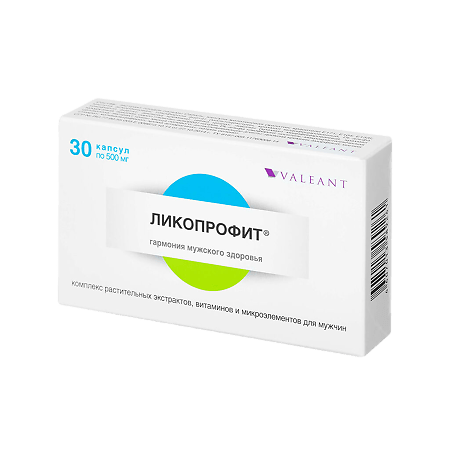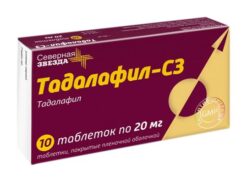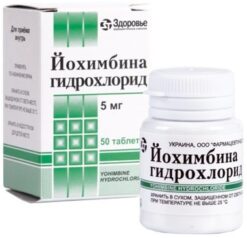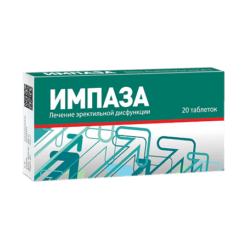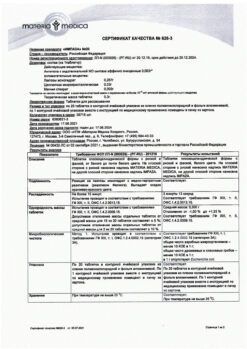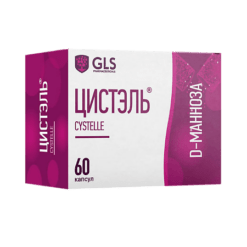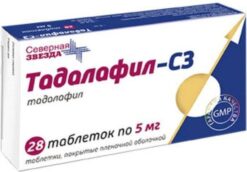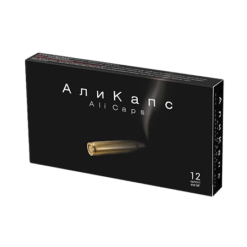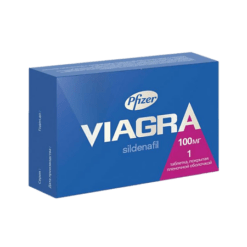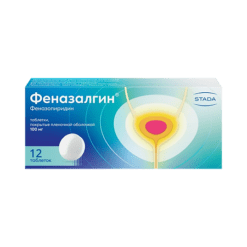No products in the cart.
Likoprofit, capsules, 30 pcs.
€20.24 €17.54
Description
LICOPROFIT is a supplementary source of vitamins E, C, D3, the antioxidant lycopene and minerals: chromium, zinc and selenium. The product also contains standardized extracts of Sabal fruit (fatty acids content not less than 25%) and standardized extracts of herb horsetail (tannin content not less than 5%). Lycopene
The carotenoid, which has powerful antioxidant properties. Lycopene selectively accumulates in the prostate tissues and protects cells from damage by free radicals, reduces the activity of inflammatory and autoimmune processes in the prostate tissues, prevents the conversion of testosterone in dihydrotestosterone and controls the excessive proliferation of prostate cells.
Licopene improves sperm quality by increasing the number of normal active forms of sperm. According to scientific studies, lycopene reduces the risk of prostate cancer. Sabal fruit extract
It contains fatty acids that block 5-alpha reductase, thanks to which there is an inhibition of prostate tissue overgrowth. It has anti-inflammatory and anti-edema effect, which leads to a decrease in the frequency of night urge to urination, reducing the volume of residual urine. Horsetail extract
The biologically active substances contained in the extract of horsetail have a cardiotonic and tonic effect, anti-inflammatory properties and a diuretic effect: helps to eliminate excess fluid from the body, while having no effect on the salt balance of the body. Thus, there is an improvement of all metabolic processes, edema is significantly reduced. Vitamin E
With strong antioxidant activity, neutralizes free radicals. A beneficial effect on sexual function in men. Improves sperm motility. Vitamin C
Infections resistance, reduces the severity of inflammatory reactions, supports the enzyme system of antioxidant protection. Vitamin D3
It prevents the development of muscle weakness, is involved in the regulation of heart rate, helps improve immunity and inhibits excessive growth of prostate cells. Chromium
A vital trace element that is a constant component of cells of all organs and tissues. Prevention of reproductive disorders in men.
Selenium
An antioxidant necessary for the normal functioning of the prostate. Deficiency can lead to infertility, chronic
fatigue and aspermia.
Zinc
Plays an important role in the antimicrobial activity of the prostate secretion. Supplemental zinc intake reduces the severity of the inflammatory response and therefore prostatic symptoms.
Micronutrients are included in the product in the form of organic compounds (chelate complexes), which improves their absorption.
Positive effects on body functions:
It improves the functional condition of the urogenital system in men and helps maintain the function of the prostate gland.
Prostatitis (inflammation of the prostate gland) The most common urological disease in men aged 20-50 years. Prostatitis patients primarily suffer from pain of varying intensity and disorders of urination (dysuria). Prostatitis affects 40% of men under 40 years old and it continues to grow with age. Factors that increase the risk of prostatitis include:
– Excessive cold,
– A sedentary lifestyle,
– Prolonged sexual abstinence, <
– Pockets of infection (e.g., colitis, chronic bronchitis, tonsillitis),
p> – Persistent venereal and urological diseases,
– Any other conditions that contribute to reduced immunity (physical exertion and stress, unbalanced diet, overwork, etc.).
Indications
Indications
As a biologically active food supplement for the prevention of hypovitaminosis and mineral deficiency, in case of inadequate and unbalanced nutrition, to increase the nonspecific resistance of the body.
Special instructions
Special instructions
Before using a product containing a complex of vitamins and minerals, you should consult your doctor.
Do not exceed the recommended dose of the product used.
In children, only dietary supplements intended for the appropriate age group should be used.
It is not a medicinal product.
Composition
Composition
1 day dose (1 capsule)
% of consumption standards
vitamin D3 (colecalciferol)
3.75 mcg
75%*
Vitamin E (tocopheryl acetate)
30 mg
300%*
vitamin C (ascorbic acid)
60 mg
100%*
zinc (as zinc citrate)
15 mg
100%*
chromium (as chromium aspartate)
50 mcg
100%**
Selenium (as sodium selenite)
70 mcg
100%*
lycopene
2.5 mg
50%**
fatty acids1
≥40 mg
–
tannins (in terms of tannin)2
≥1 mg
–
Pregnancy
Pregnancy
During pregnancy and breastfeeding, only products that are intended for pregnant women and nursing mothers should be used.
Contraindications
Contraindications
Hypersensitivity to the components of the product used, simultaneous use of medications and dietary supplements containing components of the product used.
Side Effects
Side Effects
Possible: allergic reactions.
Short product description
Short product description
Dietary supplement Not a medicine.
Before use, it is recommended to consult a doctor (specialist).
Action
Action
Dietary supplement for food. Contains a complex of vitamins, minerals, biologically active substances, which are important factors in metabolic processes.
Replenishes the physiological need for vitamins and minerals in addition to the diet, balanced taking into account the daily need for vitamins and minerals.
The effect of a particular product is determined by the biological properties of the active substances included in its composition.
Not all of the vitamins, minerals and biologically active substances listed below may be included in the dietary supplement used.
Vitamin A (retinol acetate) ensures the normal function of the skin, mucous membranes, and vision.
Vitamin D (colecalciferol) – is a regulator of calcium-phosphorus metabolism in the body, prevents the development of osteomalacia and osteoporosis.
Vitamin E (α-tocopherol acetate) has antioxidant properties, maintains the stability of red blood cells, and prevents hemolysis; has a positive effect on the functions of the gonads, nervous and muscle tissue.
Vitamin K (phytomenadione) – participates in the biological synthesis of blood clotting factors II, VII, IX and X. Helps normalize blood clotting. Participates in the synthesis of ATP and CPK in tissues, activation of ATPase, CPK, some aminotransferases, pancreatic enzymes (amylase, lipase), intestinal enzymes (enterokinase, alkaline phosphatase).
Vitamin B1 (thiamine) as a coenzyme is involved in carbohydrate metabolism and the functioning of the nervous system.
Vitamin B2 (riboflavin) is the most important catalyst for the processes of cellular respiration and visual perception.
Vitamin B6 (pyridoxine) as a coenzyme takes part in protein metabolism and the synthesis of neurotransmitters.
Folic acid (vitamin B9) takes part in the synthesis of amino acids, nucleotides, nucleic acids; necessary for normal erythropoiesis.
Vitamin B12 (cyanocobalamin) is involved in the synthesis of nucleotides and is an important factor in normal growth, hematopoiesis and development of epithelial cells; necessary for folic acid metabolism and myelin synthesis.
Nicotinamide is involved in the processes of tissue respiration, fat and carbohydrate metabolism.
Vitamin C (ascorbic acid) ensures collagen synthesis; participates in the formation and maintenance of the structure and function of cartilage, bones, teeth; affects the formation of hemoglobin and the maturation of red blood cells.
Calcium pantothenate, as a component of coenzyme A, plays an important role in the processes of acetylation and oxidation; promotes the construction and regeneration of epithelium and endothelium.
Vitamin H (biotin) is an important component of a number of enzymes and is involved in the metabolism of carbohydrates, fats and proteins.
Calcium is necessary for the formation of bone matter, blood clotting, the process of transmission of nerve impulses, contraction of skeletal and smooth muscles, and normal myocardial activity.
Magnesium helps normalize blood pressure, stimulates, together with calcium, the production of calcitonin and parathyroid hormone, and prevents the formation of kidney stones.
Potassium is the main element in every living cell; it regulates intracellular metabolism, the exchange of water and salts, activates a number of enzymes and participates in important metabolic processes.
Iron is involved in erythropoiesis and, as part of hemoglobin, ensures the transport of oxygen to tissues.
Iodine – participates in the functioning of the thyroid gland, ensures the formation of its hormones – thyroxine and triiodothyronine.
Copper prevents anemia and oxygen starvation of organs and tissues, and helps prevent osteoporosis. Strengthens the walls of blood vessels.
Cobalt regulates metabolic processes and helps increase the body’s defenses.
Manganese has anti-inflammatory properties.
Zinc has immunomodulatory properties, promotes the absorption of vitamin A, regeneration and hair growth.
Phosphorus strengthens bone tissue and teeth, enhances mineralization, and is part of ATP, the source of cell energy.
Silicon – plays an important role in the formation of bone tissue and promotes the development of the skin.
Chromium – is involved in the processes of regulating blood sugar levels.
Selenium – stimulates the immune system and is an antioxidant. Promotes normal cell development.
Nickel – is directly involved in metabolism and is necessary for the normal development of the body.
Tin – participates in protein synthesis.
Vanadium – regulates cholesterol levels, stimulates glucose utilization, activates DNA synthesis.
Biologically active substances
Carotenoids (betacarotene, lutein, lycopene) are natural organic pigments synthesized by bacteria, fungi, algae, higher plants and coral polyps; colored yellow, orange or red. Betacarotene is a precursor to vitamin A. Lutein improves vision, supports visual function under high visual load, improves cognitive function, cardiovascular function and pulmonary function. Lycopene improves skin condition, helps maintain the functional state of the cardiovascular system, and helps maintain prostate health.
Polyphenolic compounds are natural organic substances whose molecules contain 2 or more phenolic groups. They are antioxidants. They are able to have a bactericidal effect, improve the condition of the immune system, and reduce capillary permeability. Polyphenolic compounds include flavonoids (including anthocyanins, catechins, quercetin, stilbenes), lignans, and phenolic acids.
Taurine is a sulfur-containing amino acid formed in the body during the conversion of cysteine. Helps improve energy processes. Stimulates reparative and regenerative processes in diseases of a dystrophic nature and/or diseases accompanied by a sharp disturbance in the metabolism of eye tissue. Helps normalize the functions of cell membranes and activate energy metabolic processes.
Caffeine – increases mental and physical performance, stimulates mental activity, motor activity, shortens reaction time, temporarily reduces fatigue and drowsiness.
Eleutherosides – increase the synthesis of endorphins, which cause the breakdown of fats and their release into the blood. Activate the metabolism of carbohydrates, preventing the latter from being converted into fats.
Choline is a vitamin-like substance. In the human body it is necessary for the synthesis of vital substances – acetylcholine and lecithin (phosphate dicholine). Helps improve the functioning of the nervous system, mental and emotional spheres. Regulates the process of lipid metabolism in the liver.
Lecithin is a complex of phospholipids (phosphatidylcholine, phosphatidylserine and phosphatidylinositol) contained in soybean lecithin. Essential phospholipids are components of the liver cell membrane and are necessary not only for the formation, but also for stabilizing the biological structure and regeneration of liver cell membranes. In various liver diseases, lecithin reduces the cytotoxic effect of lymphocytes and necrosis of hepatocytes. Essential phospholipids regulate the functioning of cellular mechanisms: ion exchange, tissue respiration, biological oxidation; help improve the activity of respiratory enzymes in mitochondria, cell energy metabolism and normalize impaired lipid metabolism. Normalizes protein and fat metabolism, has a lipotropic effect, protects the cellular structure of the liver, restores the immune functions of lymphocytes and macrophages.
Inositol (inositol) is a vitamin-like substance that is a component of lecithin. Maintains the functional state of the nervous system, improves memory, visual function, helps strengthen the vascular wall, and helps optimize lipid and carbohydrate metabolism. Participates in protein synthesis and is necessary for muscle and bone growth.
Inulin is a polysaccharide. Belongs to the group of prebiotics, stimulating the active growth of beneficial microorganisms and ensuring the normal functioning of the digestive system and the body as a whole. Helps strengthen the immune system, normalize carbohydrate and lipid metabolism, and reduce the concentration of glucose in the blood. Increases the absorption of calcium and magnesium. Reduces the risk of blood clots and atherosclerotic plaques. Improves the activity of the cardiovascular system, helps reduce blood pressure.
Ubidecarenone (ubiquinone, coenzyme Q10) is an antioxidant agent. It has cardiotonic, cardioprotective, adaptogenic and immunostimulating effects. Helps restore physical performance, increases the body’s ability to adapt to increased loads, stressors and hypoxia.
Storage conditions
Storage conditions
In a dry place, protected from direct sunlight and out of reach of children at a temperature not exceeding 25°C.
Shelf life
Shelf life
2 years.
Manufacturer
Manufacturer
VTF LLC, Russia
Additional information
| Shelf life | 2 years. |
|---|---|
| Conditions of storage | In dry place, protected from direct sunlight and out of the reach of children at a temperature not exceeding 25 ° C. |
| Manufacturer | VTF LLC, Russia |
| Medication form | capsules |
| Brand | VTF LLC |
Related products
Buy Likoprofit, capsules, 30 pcs. with delivery to USA, UK, Europe and over 120 other countries.

